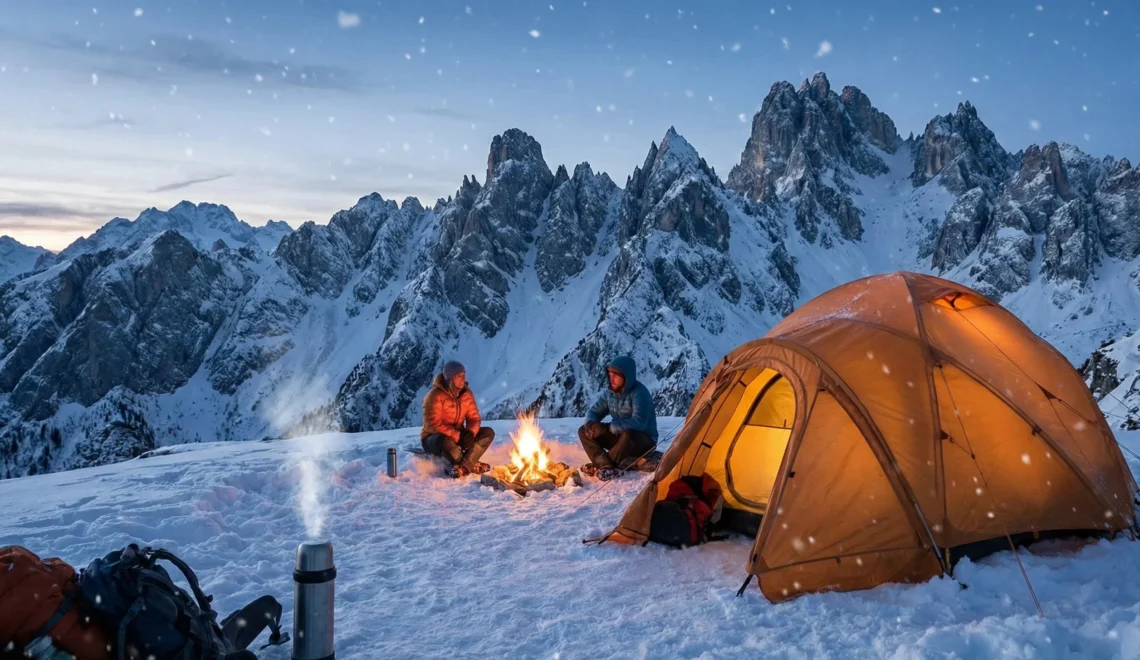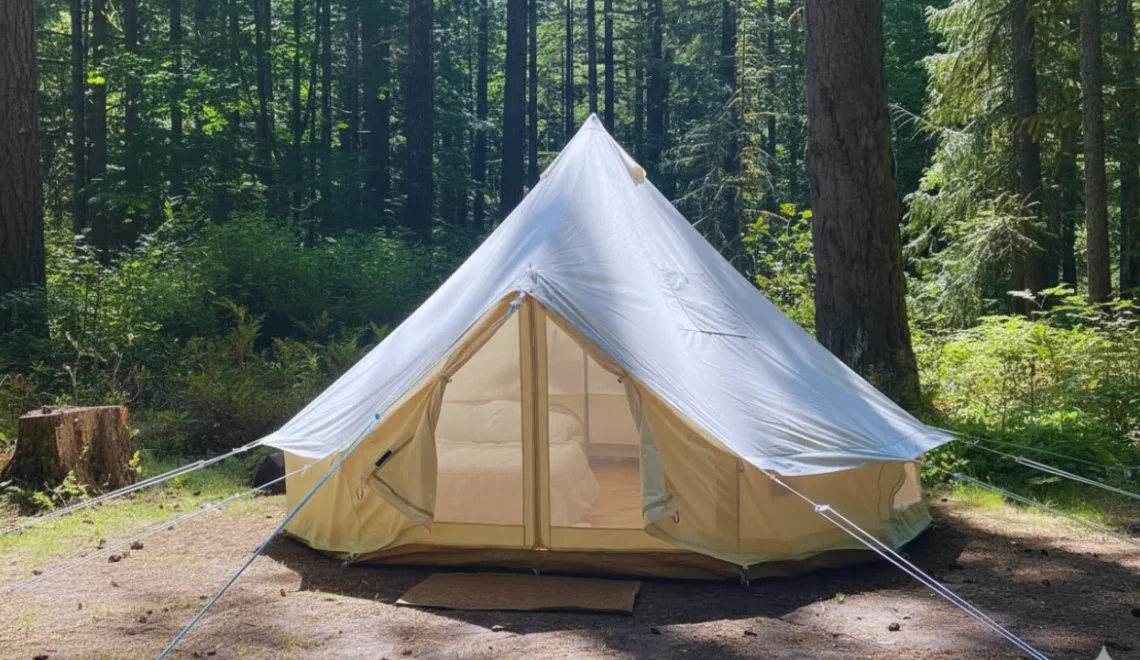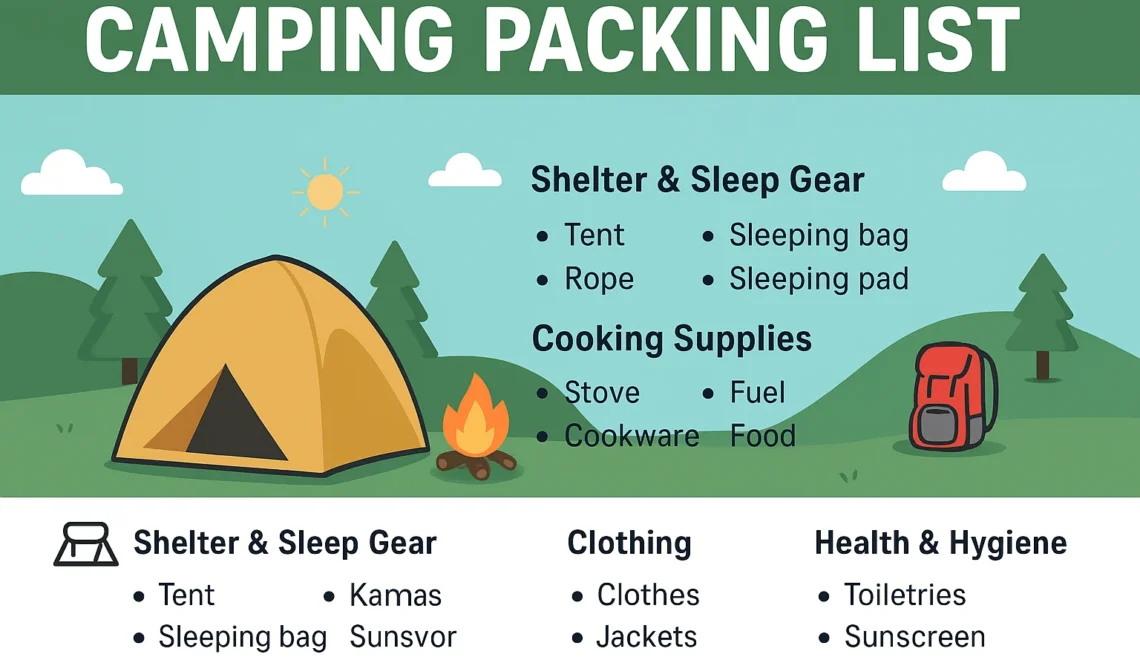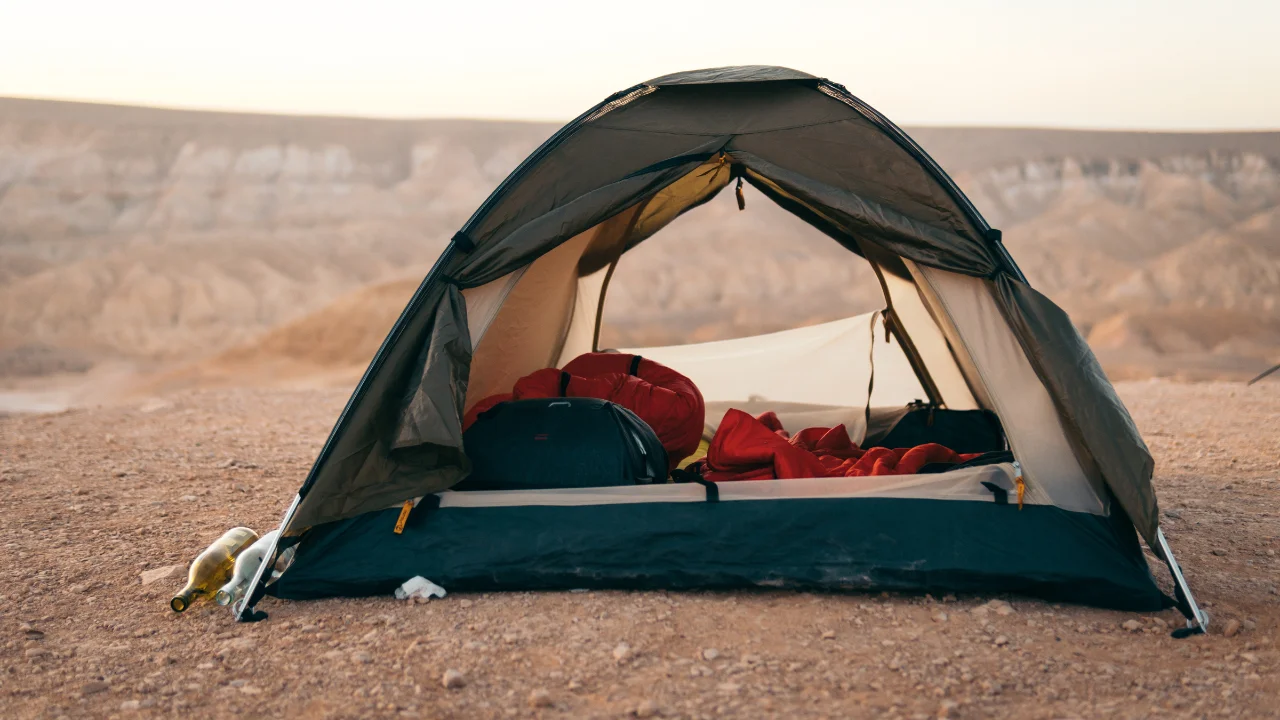
Dry Camping Tips – Master Off-Grid Freedom
After years of travel and vacationing, I realized the biggest shift in my lifestyle came from trading my tent for an RV and later upgrading to a camper van. The moment you step into one of these self-contained units, it no longer feels like a road trip—it feels like you’re already home. You carry the comforts of your residence with you: a proper bed with a real mattress, a working kitchen, and sometimes even a bathroom. These built-in amenities make a huge difference when you’re away from the standard campground. That’s where dry camping becomes an attractive option.
Unlike RV camping at a public campground where electrical, sewer, and other connections are readily available, dry camping is about doing without those. It has its pros and cons, of course. At first, going off-grid felt daunting, especially without utilities like electricity, water, or sewage hookups. But over time, I found the beauty in this simpler way of camping—alone with your vehicle on open land, sometimes in the midst of nowhere. For many full-time RVers and weekend travelers, it’s a popular way to avoid crowded campgrounds and resorts. The family-friendly vibe of traditional setups is nice, but there’s something truly enjoyable and even liberating about being out there on your own terms. I now prepare using tips I’ve gathered over time and bring a backup power source like the Jackery Solar Generators—especially the Solar Generator 3000 Pro. With its 3024Wh capacity, it powers 99% of my outdoor appliances and gives me peace of mind in arid situations where even public Wi-Fi is a luxury.
Table of Contents
ToggleAdvantages and Disadvantages of Dry Camping
Many mainstream campers are used to standard campgrounds where access to amenities like flush toilets, showers, picnic tables, a camp store, and even Wi-Fi are expected. But when you camp off the grid, everything changes. I remember the first time I had to figure things out on my own—it felt like flipping a coin, not knowing if the day would be smooth or full of little challenges. Yet, that’s the charm. Dry camping strips things down, offering a more raw and personal connection with nature, far from the routines of crowded spots. You give up convenience but gain freedom.
Advantages
One of the things I love most about dry camping is how free it feels—literally and financially. While standard RV camping can come with costs ranging from $25 to $80 a night on average, I often find quiet campgrounds that cost nothing at all. You’re not restricted to designated campsites, and that means you can park where the view is best or where you have easy access to water. There’s no need for reservations or to enter lotteries just to secure a site. For me, the best kind of trip is one where I’m surrounded by companions, a pristine, natural landscape, and total privacy. Even though some popular places are crowded, there are always hidden gems that offer a truly private escape without the noise and bustle—just nature and freedom ringing in your ears.
Disadvantages
While dry camping gives you freedom, it also comes with real challenges. You can’t just park and camp anywhere—some areas are legally murky, and if you don’t understand the laws, picking the wrong spot can get you in trouble. There’s also more work involved compared to regular camping. With no running water or electricity, you rely on campfires, propane, or solar power to meet your daily needs. I always bring generators and a solid emergency kit, but even then, the amount of cargo you need to carry, like a supply of off-grid essentials, can really weigh you down.
The Basics of Dry Camping
Before diving into dry camping, it’s important to understand that your RV, van, or any reliable vehicle will be your only transportation and shelter, so make sure it’s in good working order. I’ve found that the key to comfort while off the grid is being prepared with the right essentials. Start with food—modern coolers are incredibly efficient and can keep items cold for up to 10 days. I always pack my cooler with compact, non-perishable dry goods for extra backup. Water is even more vital, and I recommend building in several redundancies for your source—carry fresh water by the jug, plus a filtration pump, straw, and purification tablets just in case.
Power is another big part of staying safe and connected while off-grid. I use solar-powered phone chargers, radios, and even full-scale onboard generators to meet my energy needs in the wild. And don’t forget your emergency supplies. When you’re miles from civilization, having basic gear like a durable tactical flashlight, backup batteries, matches, a fire-starter, emergency radio, and a well-stocked first-aid kit can make all the difference. These items are not just helpful—they’re critical.
The Pros and Cons of Dry Camping
When I first tried dry camping, I didn’t realize how different it would be from staying at a standard campground with flush restrooms, showers, picnic tables, camp stores, and even Wi-Fi. Out in the wild, you rely on your own devices, and while that can feel freeing, it also means giving up some excellent amenities. But like every coin, there are two sides. On the plus side, it’s often free or only a small fee when you’re on public land or even private land. You’re not paying $25 to $80 a night like you might with standard RV camping in renowned campgrounds. You get fewer restrictions, especially from landowners, and more choices for parking locations in camping locations like breweries, farms, golf courses, or a peaceful lakeside national forest campground with history. Fewer campers around means you might catch a sunrise, sunset, or even watch the moon light up your surroundings in a pristine natural setting with just your camping companions.
However, one major drawback of living off the grid is the lack of hookups—you’ll need to carry everything, including your supply of water, an emergency pack, and off-grid power, all of which can add weight. You must also be mindful not to overflow your wastewater tanks and bring extra gas for cooking or building a fire. There are legal limitations depending on the land, and some areas may require permit requirements before you camp or park. It’s vital to need check regulations and know if there are designated camping areas. The effort is real—laundering clothing, maintaining campfire, even using something like an RV skirting such as AirSkirts can help protect your RV from colder temperatures, especially in the mountains.
Despite the limited amenities and work requirements, dry camping offers a unique kind of freedom. It’s not always about comfort but about the experience. You learn how to appreciate small things, like how cooking over an open flame or washing up in nature feels more rewarding. Yes, it’s more work required, but for many, including me, that’s part of the charm of dry camping—being part of a simpler, slower rhythm that connects you back to nature.
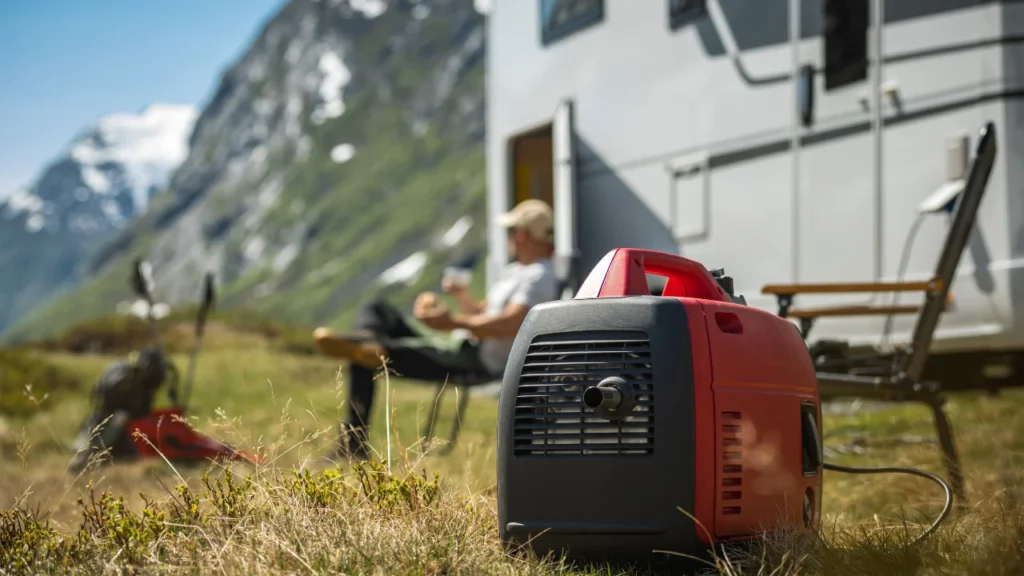
What to Pack for Dry Camping
When heading out for dry camping in the wilderness, it’s important to be well-prepared with the right essentials from home. Start with a reliable RV for comfort and convenience, ensuring it’s stocked with necessary items like fuel, propane, and a water filter. To keep things running smoothly, bring a Jackery Solar Generator with solar panels for solar energy and extra power, especially if you’re winter dry camping. A grill or outdoor stove is essential for cooking, and don’t forget a camping chair, table, and dimmable LEDs to enjoy the natural surroundings. Also, make sure to pack an emergency kit, and keep batteries charged with solar products like the Jackery Solar Generator 3000 Pro. This solar generator offers a high capacity and features like SMART App control for mobile device monitoring.
For dry camping, make sure you have a fresh water tank, bladder, and enough water to stay hydrated. Having the right power station is crucial, especially if you’re far from shore power. The Jackery Explorer power stations can convert solar energy into usable electricity, making them a must-have for any off-grid adventure. With solar charging, these generators provide clean energy and are environmentally friendly. Pack carefully and prepare for the wild excursion with the right gear to make your camping experience enjoyable and safe.
Dry Camping Tips
When dry camping, the first thing you need to consider is your RV. Understanding both the benefits and limitations of your RV is key. For example, a pickup camper with a compact dimension is easier to park and allows you to camp virtually anywhere, but it might lack space compared to a larger RV. When off the grid, you won’t have access to shore power like in a regular campsite. This means you’ll be relying on 12-volt power for your appliances like lights and fans, but you’ll need to avoid using high-power items such as a microwave or air conditioner. To solve this, solar power is a great way to boost your electrical capacity and keep things running smoothly. With options like Jackery solar generators, which come in various sizes and capacities (like 3024Wh), you can recharge using solar panels, wall outlets, or even carports, ensuring that your power stays strong throughout your trip.
In addition to electricity, water is one of the most important essentials for dry camping. Always arrive with a full fresh water tank and carry extra water with jerry jugs or bladders to refill when needed. Gray water conservation is just as important as conserving fresh water—be mindful of how much you use for toilets, showers, and dishes. Black tanks need to be emptied regularly, so ensure your tanks are monitored closely to avoid any unpleasant situations. Finally, garbage disposal can be tricky, as you won’t have access to a dumpster in remote areas. Many gas stations or grocery stores allow you to dispose of trash while refueling or purchasing groceries, but always request permission before leaving your waste behind.
Frequently Asked Questions (FAQ) about Dry Camping
How do I power my RV while dry camping?
While dry camping, your RV may only have 12-volt power unless you have a solar power system. Using a Jackery solar generator or solar panels can help charge your batteries and provide electricity for your appliances like lights and fans. Make sure to also bring backup power sources for extra reliability.
How do I manage water during dry camping?
When dry camping, it’s important to conserve water. Start with a full fresh water tank, and carry extra water in jerry jugs or bladders. Also, remember to manage your gray water tank by limiting water use for toilets, showers, and dishes to extend your camping trip without running out of space in your tanks.
What should I do with trash while dry camping?
While dry camping, there are no dumpsters around, so it’s important to plan for waste disposal. Many gas stations and grocery stores allow you to dispose of trash while refueling or shopping, but always request permission before leaving your waste. Be sure to pack out everything you bring with you.
Final Thoughts on Dry Camping
Dry camping offers a unique opportunity to escape the crowds and experience nature at its purest. It requires preparation, but the rewards are well worth the effort. Whether you’re relying on a solar generator for power, managing your water supply, or learning to conserve resources, the experience can be deeply satisfying. With the right mindset and the right gear, such as solar panels, water filters, and emergency kits, dry camping becomes an adventure that connects you with the outdoors in ways traditional campgrounds simply can’t. Embrace the challenge, and you’ll enjoy an unforgettable, off-the-grid experience that feels both freeing and fulfilling.

